
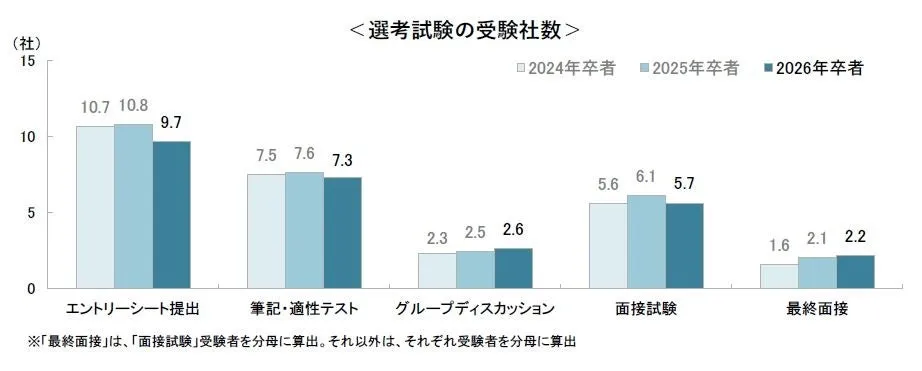
New Survey Reveals Japanese Students' Job Hunting Trends and Challenges for 2026 Graduates
New Insights into Job Hunting for Japanese Students
As the graduation date for 2026 approaches, the job market in Japan is heating up. A recent survey conducted by Caritas, headquartered in Bunkyo, Tokyo, has thrown light on the current job-hunting landscape for university students. This comprehensive study includes 1,134 participants, ranging from undergraduate students to master's candidates in technical fields, uncovering various trends and challenges faced by the youth in their quest for employment.
Survey Overview
The survey was conducted from April 1 to 6, 2025, targeting fourth-year university students scheduled to graduate in March 2026. The respondents included a diverse mix of students, with 226 male and 486 female liberal arts students, alongside 267 male and 155 female science and engineering students. The data collected through online methods reflects the aspirations and hurdles of students as they approach the end of their academic journey.
Key Findings
1. Number of Applications and Information Sessions
On average, students reported applying to 21.8 companies, which is a slight decrease from last year’s average of 22.6. This indicates a cautious approach among students as they navigate the competitive job market.
2. Preferred Length of Information Sessions
When it comes to company information sessions, many students expressed a desire for a duration of 1 to 1.5 hours for live events, while on-demand sessions are preferred to be shorter. This suggests that students are looking for efficiency in their job-hunting activities.
3. Experience with Selection Tests
Approximately 90% of students have participated in various selection processes such as submitting entry sheets, taking written tests, and attending interviews. Notably, 70% have experienced final interviews. Alarmingly, almost half of the students (49.9%) mentioned that they missed opportunities to apply for certain companies due to early submission deadlines for entry sheets (ES).
4. Current Offer Rates
As of April 1, 2025, the offer rate stands at 64.9%, surpassing the previous year’s figure of 62.8%. Despite this positive indicator, over 24.6% of responders stated that they have already secured a position and soon reached the conclusion of their job-hunting efforts, whereas about 70.5% are still actively seeking employment.
5. Status of Preferred Companies
When discussing their top-choice companies, 22.2% of respondents indicated that they are yet to begin the selection process, while 27% are currently interviewing. Interestingly, the percentage of students who have completed the selection process for their first-choice company has risen to 41%, reflecting a growing trend in this area.
6. Field Preferences Among Continuing Job Seekers
For those who remain on the job hunt, the most desired industries appear to be Information Processing & Software and Internet Services, indicating a clear inclination towards sectors perceived as technologically advanced.
7. Attractive Employment Forms
Among the employment types, the preference for comprehensive employment positions (membership-type) remains the highest. Furthermore, interest in guaranteed initial placements is rising, highlighting a shift in priorities among students.
In conclusion, the job-hunting landscape for 2026 graduates in Japan remains competitive and challenging, with trends showing both caution and optimism among students. With these insights, stakeholders can better understand the evolving expectations of the new generation entering the workforce. For detailed report, visit Caritas.
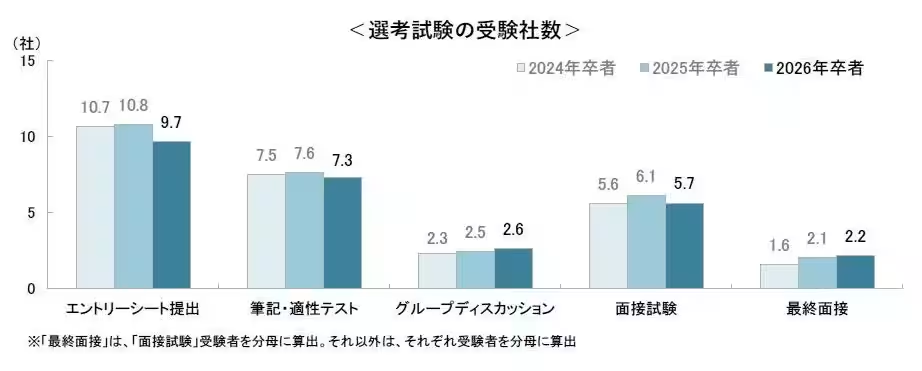
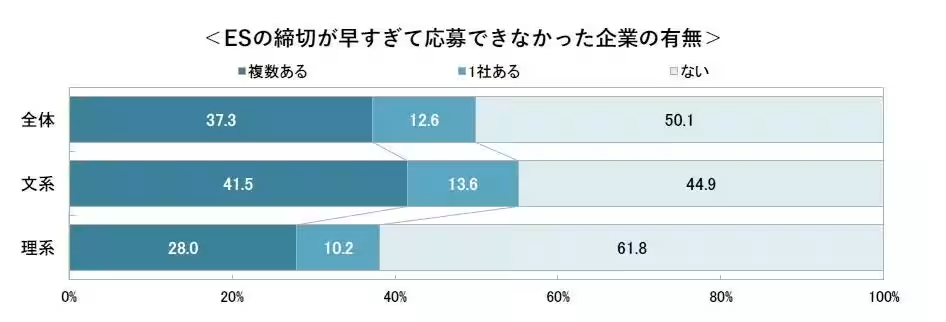
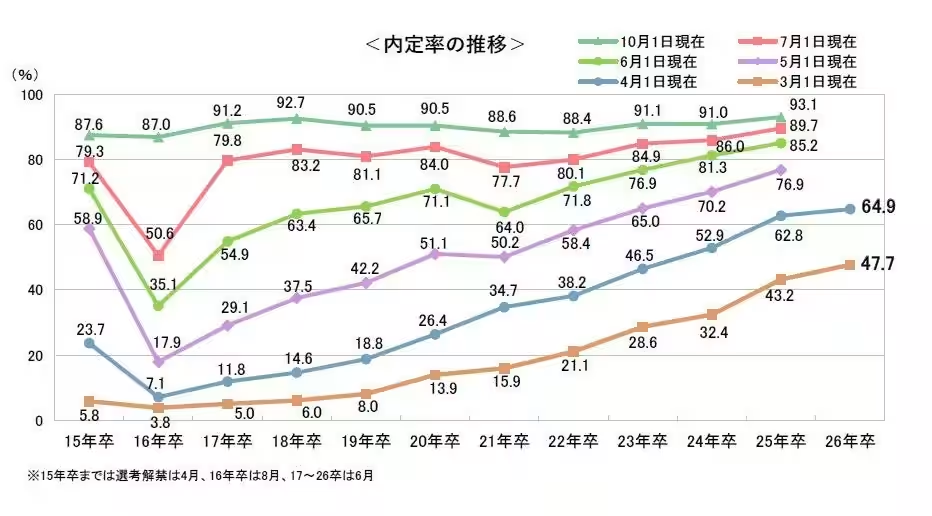
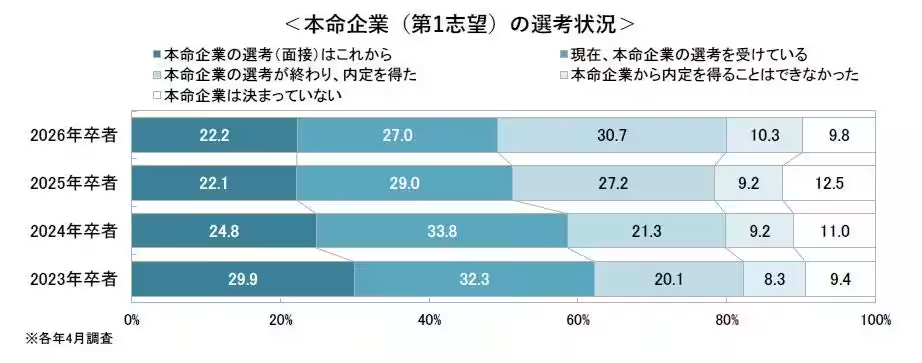
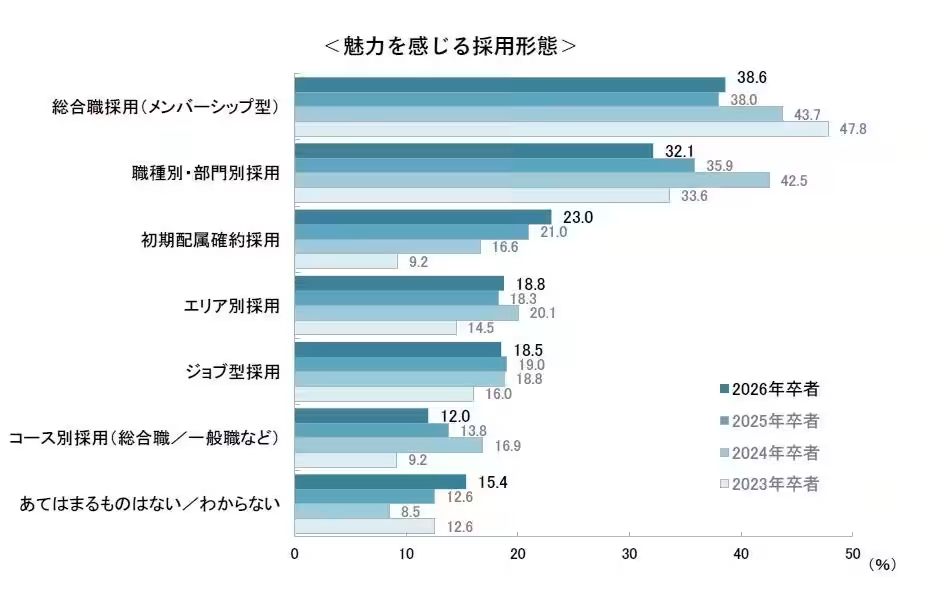
Topics People & Culture)










【About Using Articles】
You can freely use the title and article content by linking to the page where the article is posted.
※ Images cannot be used.
【About Links】
Links are free to use.